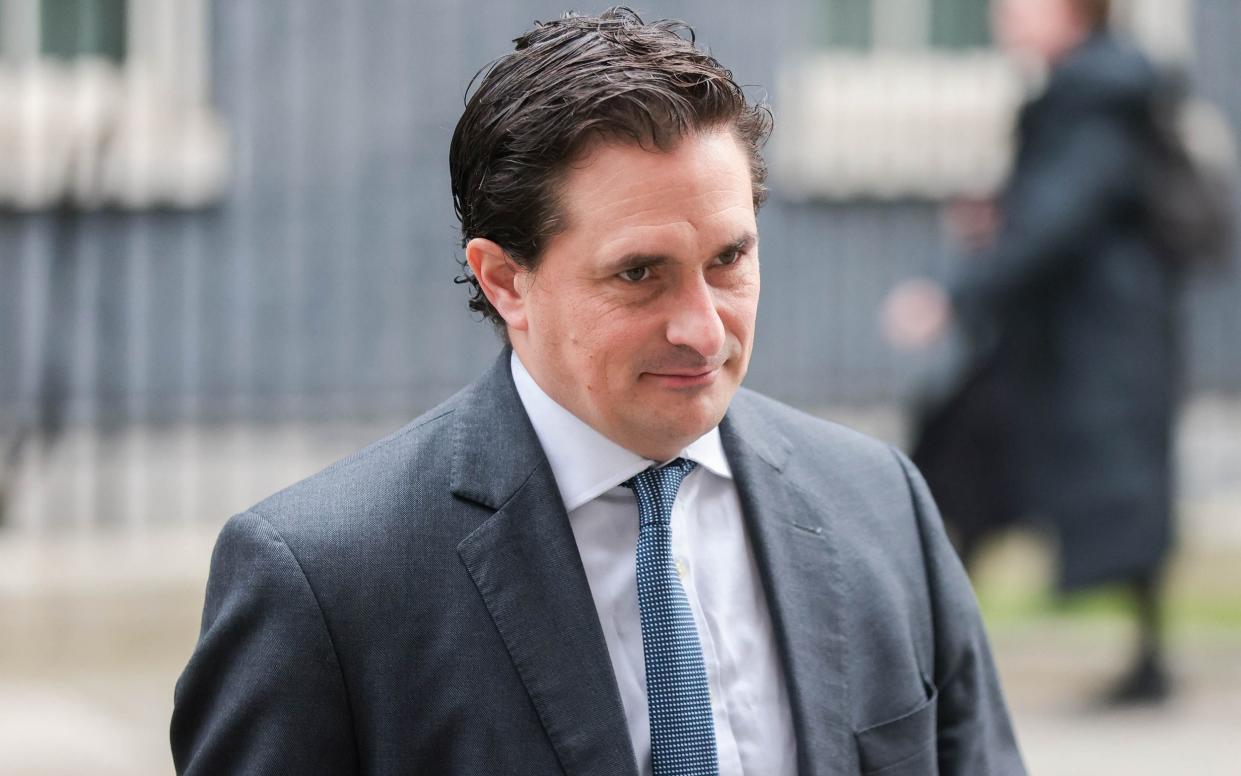Johnny Mercer has days to name sources in Afghan Inquiry

Johnny Mercer has been given 10 days to name Special Forces whistleblowers who raised concerns about the alleged executions of Afghans or face a possible jail sentence or a fine.
A senior judge has accused the Cabinet minister of withholding evidence with “significant relevance” to his investigation into claims of atrocities committed by the SAS in Afghanistan more than a decade ago.
Sir Charles Haddon-Cave, who chairs the Afghanistan public inquiry, has issued Mr Mercer, the minister for veterans’ affairs, with a section 21 notice compelling him to reveal the identities of his sources. The inquiry has given Mr Mercer until April 5 to provide the information.
If Mr Mercer continues to defy the judge, he could face prosecution by the inquiry in a magistrates’ court or be found in contempt in the High Court. Sources said conviction in the High Court could lead to imprisonment of up to two years or an unlimited fine. If found guilty by magistrates, Mr Mercer would be given a criminal conviction and a possible jail term of up to six months.
Mr Mercer, who is unable to comment, has declined to identify the soldiers because of their alleged vulnerability. Friends have pointed out that the sources are not involved in any criminality and did not witness murders being committed. General Lord Dannatt, the former head of the Army, has described Mr Mercer’s treatment at the hands of the inquiry as “outrageous”.
Inquiry has ‘robust procedures in place’
But in its first statement following The Telegraph’s disclosure that Mr Mercer was facing the threat of jail, an inquiry spokesman said: “The inquiry considers the evidence that the Rt Hon. Johnny Mercer MP is withholding is of significant relevance to its work.
“Mr Mercer voluntarily provided a written statement that indicated he had knowledge of facts relating to the terms of reference. When he appeared in an open hearing, Mr Mercer refused to provide those facts, despite comprehensive and repeated assurances as to confidentiality that would safeguard all concerned.
“The inquiry has therefore had no option but to pursue this matter by way of issuing a formal notice under section 21 of the Inquiries Act 2005.”
The inquiry insists it has “robust and sophisticated procedures in place” to protect the identity of witnesses.
It said it issued the section 21 notice to Mr Mercer on March 13. The notice states: “Mr Mercer is required to supply the witness statement by 4pm on Friday April 5 2024.” It gives Mr Mercer until April 3 to apply to have the notice revoked.
The notice further adds that Mr Mercer – if he continues to refuse to comply – could face criminal prosecution by the inquiry in a magistrates’ court; or enforcement in the High Court.
A source said: “The main aim is to secure compliance rather than punish.”
Mercer ‘protects junior ranks’
A friend of Mr Mercer’s has told The Telegraph: “These sources are not people who are in any way suspects. They are vulnerable soldiers and veterans who for their own legitimate reasons didn’t want to engage with the inquiry, but Johnny was able to tell their story for them because they trusted him.
“This is not about him protecting wrongdoers. But Johnny has spent his entire political career protecting junior ranks, and he won’t change that.”


